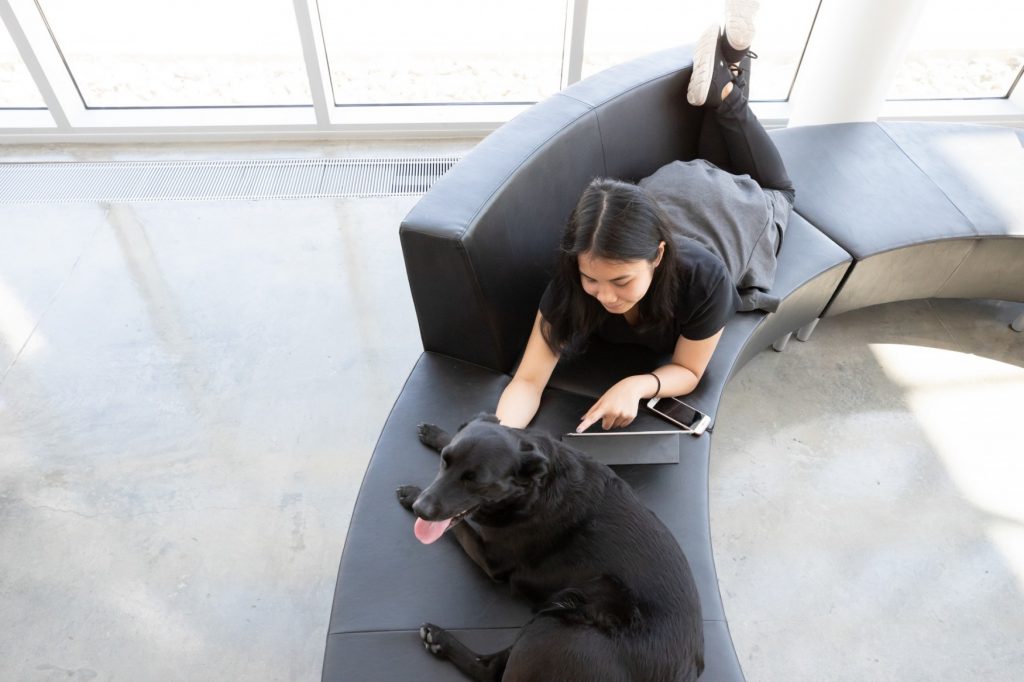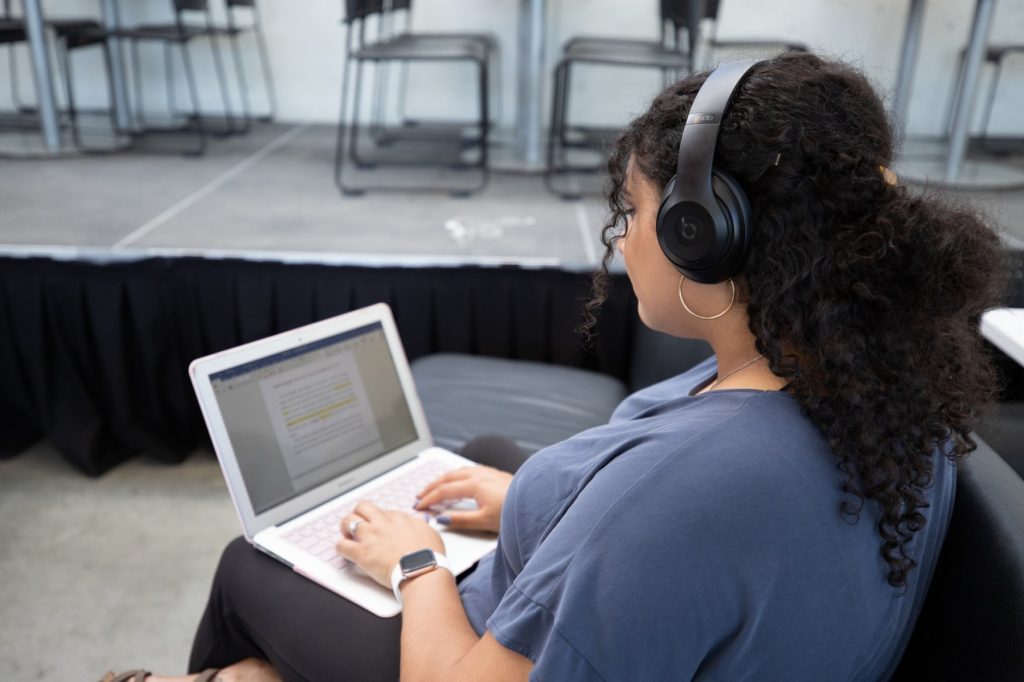Top tips for balancing online learning, wellness
Pivot, unprecedented and new normal have all been used—and over-used—to describe this rollercoaster of a year. Winter break is usually a time to unwind and celebrate the end of a completed university term.
Students: you deserve the break! And when you’re ready to start thinking about winter semester, here are some top tips and advice on how to have a successful term. We’ve combined feedback from current students, with insight from our experts in wellness and online learning, to create a TRU tip sheet on how to have a successful winter term.
Advice from students, to students
When TRU School of Business and Economics (SoBE) Dean Mike Henry noticed the difficulty people were having with the shift to virtual, he knew something had to be done. To get answers, he went directly to the students. Henry and the SoBE faculty set up optional, informal small group conversations with students to get a direct read on how students were doing with the transition, and to collect feedback: good and bad.
Conversations took place over several weeks and from those talks, Henry and team recorded some solid advice from students on what was working for them in this virtual learning environment:
Structure: Build in more routine than you’d ordinarily need. You aren’t physically leaving your home to enter campus, so routine helps define school, leisure and rest time.
Breaks: Work hard, but always take mental and physical breaks.
Cut back: Being home and not on-campus means some students felt pressure to keep working at their jobs while trying to study, leading to burnout in many.
Reach out: Until you can meet each other in person, connect with your classmates and instructors virtually. Having a sounding board to talk through assignments or ideas is incredibly important.
Unplug: The majority of learning is happening via screens, so it’s important to take time to sign off and be fully offline.

Mental and physical wellness + academic success
Wellness has never been more important: if mental or physical health are lacking, academic success is difficult to reach. Alicia Ashcroft of the Faculty of Student Development is a staunch supporter of looking at self-care holistically in order to reach goals.
“If you’re tired, or hungry, or your mental health is imbalanced, you just won’t be able to be your best self in class,” she says.
“Self-care is a study tool because if you aren’t taking care of yourself in those ways, it does manifest in your schoolwork. And doing well in school and managing your time will ease your mind and build confidence with other life challenges you are facing.”
The Faculty of Student Development is dedicated to connecting students with supports, be it social, personal, academic or emotional. Ashcroft shares her thoughts on a few services that aid wellness:
Multi-faith Chaplaincy: “When you feel like a grain of sand on an infinite beach, perhaps very alone and untethered, conversations with these very wise people can help ground you.”
Counselling: “Accessing mental health supports can help clarify issues, establish a game plan and develop a tool kit of coping strategies. Counselling can leave you feeling calmer and more in control of your emotions.”
Supplemental Learning: “Supplemental Learning (SL) offers informal, yet structured, peer-led study sessions. There’s space to ask questions, compare notes, solve problems and break down big concepts into digestible portions through games and mock exams.
Wellness Centre: “When the Wellness Centre was open as a physical drop-in service, it was an incredibly robust presence. Chelsea Corsi has created ways for students to connect and build that same peer-to-peer community virtually.”
Early Alert: “This is an academic safety net for students in need; a place to go if you don’t know where to start, and Pamela Fry will help and talk it through with you.”
Accessibility Services: “We have an assistive technology specialist on-campus to help navigate the tech side of the university experience, with all the different apps and web browsers virtual delivery has required.”

Staying on track asynchronously
Iain Pardoe of TRU Open Learning was ready for the shift to virtual delivery. Pardoe has been teaching mathematics and statistics in Open Learning, TRU’s distance education division, since 2010. Pardoe enjoys working in online education, particularly developing courses and helping students reach goals by listening and being responsive to their needs.
With his years of expertise, Pardoe shared these tips on how to stay on track while studying in an asynchronous classroom.
Read the syllabus carefully. “I find the majority of students’ questions in the first few weeks of a course are answered in the syllabus.”
Make a calendar with key dates for each of your courses. “Include assignment due dates and also dates when you intend to start working so that you don’t leave things to the last minute.”
Reach out to your instructor at the beginning of the course. “Introduce yourself and ask the best way to contact them with course questions. We are here to support your learning, so don’t hesitate to contact us with questions.”
Plan ahead. “Give yourself as much time as possible to complete each assignment. Contact your instructor if something comes up that causes you to miss a deadline. We are very understanding about circumstances beyond your control that impact your ability to complete course tasks.”
Reach out quickly for assistance with technical problems. “Don’t waste time trying to solve these issues yourself. We may be able to help with quick fixes or contact Information Technology Services for help with more complicated problems.”
Be aware of your rights and responsibilities, particularly with respect to academic integrity. “Studying online can present particular challenges around academic integrity and you want to make sure you don’t inadvertently do something you’re not supposed to do. Contact the Office of Student Affairs for information.”
For more on TRU’s student services resources, visit the Faculty of Student Development.


